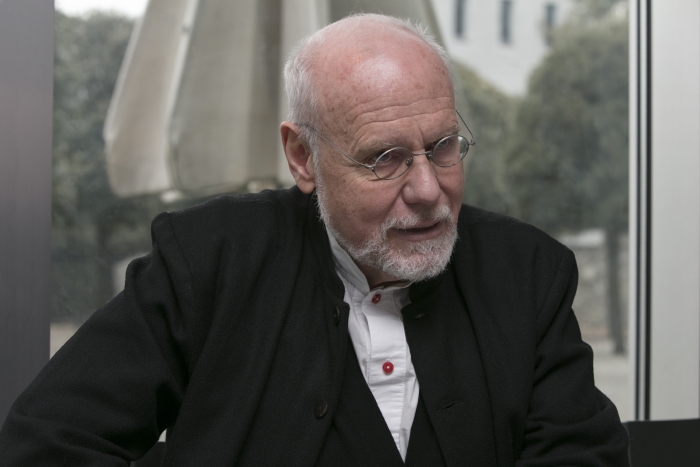YEAR: 2025
ID APARTADO: 3
APARTADO: awards_and_jury_members
SUBAPARTADO:
SECCION: kutxabank_new_directors_award_jury
TABLE: 1
ID: 22518
LANGUAGE: in
MAQUETACION:
TITULO:
RULE: 1
Z365" or "Festival all year round" is the new strategic point of the Festival in which converge investigation, accompaniment and development of new talents (Ikusmira Berriak, Nest); training and cinematic knowledge transfer (Elías Querejeta Zine Eskola, Zinemaldia + Plus, Filmmakers' dialogue); and investigation, disclosure and cinematic thought (Z70 project, Thought and Discussion and Research and publications).
Marco Müller (Roma) is a film scholar and producer. He is currently Director of the Film Arts Research Centre at Shanghai University and Distinguished Professor at Shanghai Film Academy.
He has served as director of several major film festivals in Europe, including Pesaro (1982-1989), Rotterdam (1990-1991), Locarno (1992-2000), Venice (2004-2011), and Rome (2012-2014). In China, he has been head programmer of the Beijing International Film Festival and programme director of Fuzhou Silk Road Festival (2015) and has initiated and directed the Macao International Film Festival (2016), the Pingyao International Film Festival (2017–2020) and the Macao Asia-Europe Youth Cinema Film Festival (2024). He has also served as artistic director of the Hainan International Film Festival (2022).
Müller also founded key initiatives such as the Hubert Bals Fund and CineMart (Netherlands), the Montecinemaverità Film Fund (Switzerland), and the South/East Cinema Fund (Italy), which support independent filmmaking in emerging regions.
As a producer, Müller has championed films that have left a mark on the global festival scene and the arthouse circuit. Among the awards-winning films he has produced or co-produced are: Seventeen Years (Zhang Yuan, 1999), which won the Silver Lion in Venice, Blackboards (Samira Makhmalbaf, 2000), which won the Jury Prize in Cannes, No Man’s Land (Danis Tanović, 2001), which won Best Screenplay at Cannes and the Academy Award for Best Foreign Language Film; and Sud pralad /Tropical Malady (Apichatpong Weerasethakul, 2004), again winner of the Jury Prize at Cannes.
He has written or edited over twenty books on European, Chinese, Japanese, Indian and Asian, Russian, and Soviet cinema.
Monday to Thursday: from 9:00 a.m. to 3:30 p.m.
Fridays: from 10:00 a.m. to 2:00 p.m.





